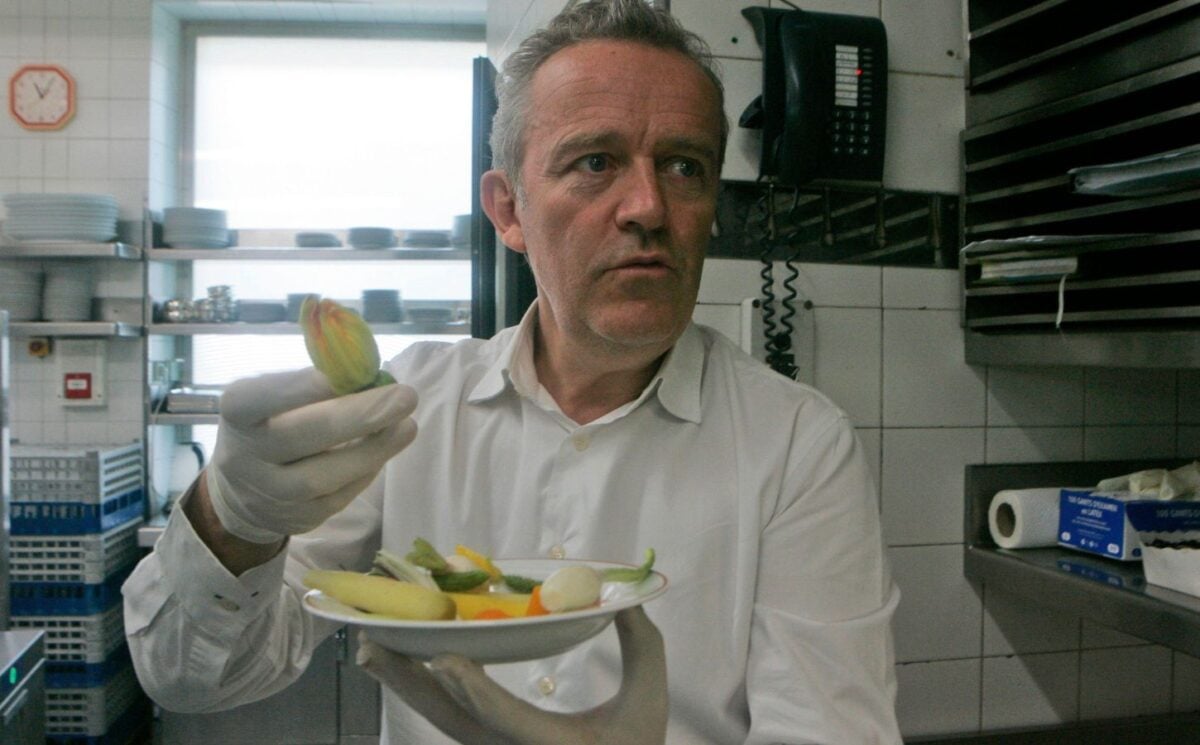Summary
Arpege founder Chef Alain Passard first phased out red meat over 20 years agoThis article was written by Liam Pritchett on the PBN Website.
Source: Home - Plant Based News

AI News Q&A (Free Content)
Q1: What inspired Chef Alain Passard to transition Arpege's menu to a plant-based focus?
A1: Chef Alain Passard's transition to a plant-based menu at Arpege was inspired by his passion for nature and the desire to reduce the restaurant's environmental impact. Passard has been gradually moving towards this change since he first removed red meat from the menu over two decades ago. The updated menu emphasizes seasonal vegetables and excludes meat, fish, and dairy, although honey from Arpege's in-house beehives is still used. This shift makes Arpege the first three-Michelin-star restaurant in France to adopt a primarily plant-based menu.
Q2: How has the diversity of plant-based food consumption been linked to health outcomes in recent studies?
A2: A recent study on plant-based food consumption in the UK revealed that diversity in plant-based diets is positively associated with improved cardiometabolic health outcomes. The study analyzed data from the UK National Diet and Nutrition Survey and found that higher diversity in plant-based food intake correlated with better diet quality and health markers such as lower BMI and improved blood pressure levels. Educational attainment and income were also predictors of higher diversity in plant-based diets.
Q3: What are some notable innovations in the plant-based culinary scene that have influenced high-end dining?
A3: Notable innovations in the plant-based culinary scene include the adoption of plant-based menus by high-end restaurants such as Eleven Madison Park and Arpege. These establishments have transitioned to plant-based menus while maintaining their Michelin star ratings, showcasing plant-based dishes' potential in haute cuisine. This trend is driven by chefs' desire to create environmentally sustainable and health-conscious dining experiences while exploring the culinary possibilities of plant-based ingredients.
Q4: What impact does Arpege's menu change have on the restaurant's reputation and culinary scene in France?
A4: Arpege's shift to a plant-based menu marks a significant milestone in the French culinary scene as it becomes the first three-Michelin-star restaurant in France to embrace such a change. This move is seen as a major event by food critics and positions Chef Alain Passard as a pioneer in plant-based haute cuisine. The restaurant's reputation is expected to be enhanced by this innovative step, attracting diners interested in sustainable and plant-based dining experiences.
Q5: What are the typical dishes featured on Arpege's new plant-based menu, and how do they reflect Chef Passard's culinary philosophy?
A5: Arpege's new plant-based menu features dishes such as a 'mosaic' of tomatoes, flamed aubergine with melon confit, and a medley of onion, carrot, shallot, and cabbage. These dishes reflect Chef Passard's culinary philosophy of elevating vegetables to a grand scale and celebrating their natural flavors. The menu emphasizes seasonal ingredients and showcases Passard's creativity in crafting dishes that are both artistic and rooted in nature.
Q6: How have other high-end restaurants responded to the trend of plant-based menus?
A6: Other high-end restaurants, like Eleven Madison Park in New York, have also transitioned to completely plant-based menus, reflecting a growing trend in the fine dining industry. Eleven Madison Park retained its three Michelin stars after the change, indicating that plant-based cuisine can meet the rigorous standards of high-end dining. This shift is largely driven by increasing consumer demand for sustainable and health-conscious dining options.
Q7: What are the broader implications of adopting plant-based diets on environmental sustainability?
A7: Adopting plant-based diets has significant positive implications for environmental sustainability. By reducing reliance on animal products, plant-based diets contribute to lower greenhouse gas emissions, reduced land and water use, and decreased biodiversity loss. Restaurants like Arpege, which focus on seasonal and locally sourced plant ingredients, further enhance sustainability by reducing transportation emissions and supporting local agriculture.
References:
- Characterising the diversity of plant-based food and beverage consumption in adults, and exploring associations with cardiometabolic health outcomes: A cross-sectional study.





